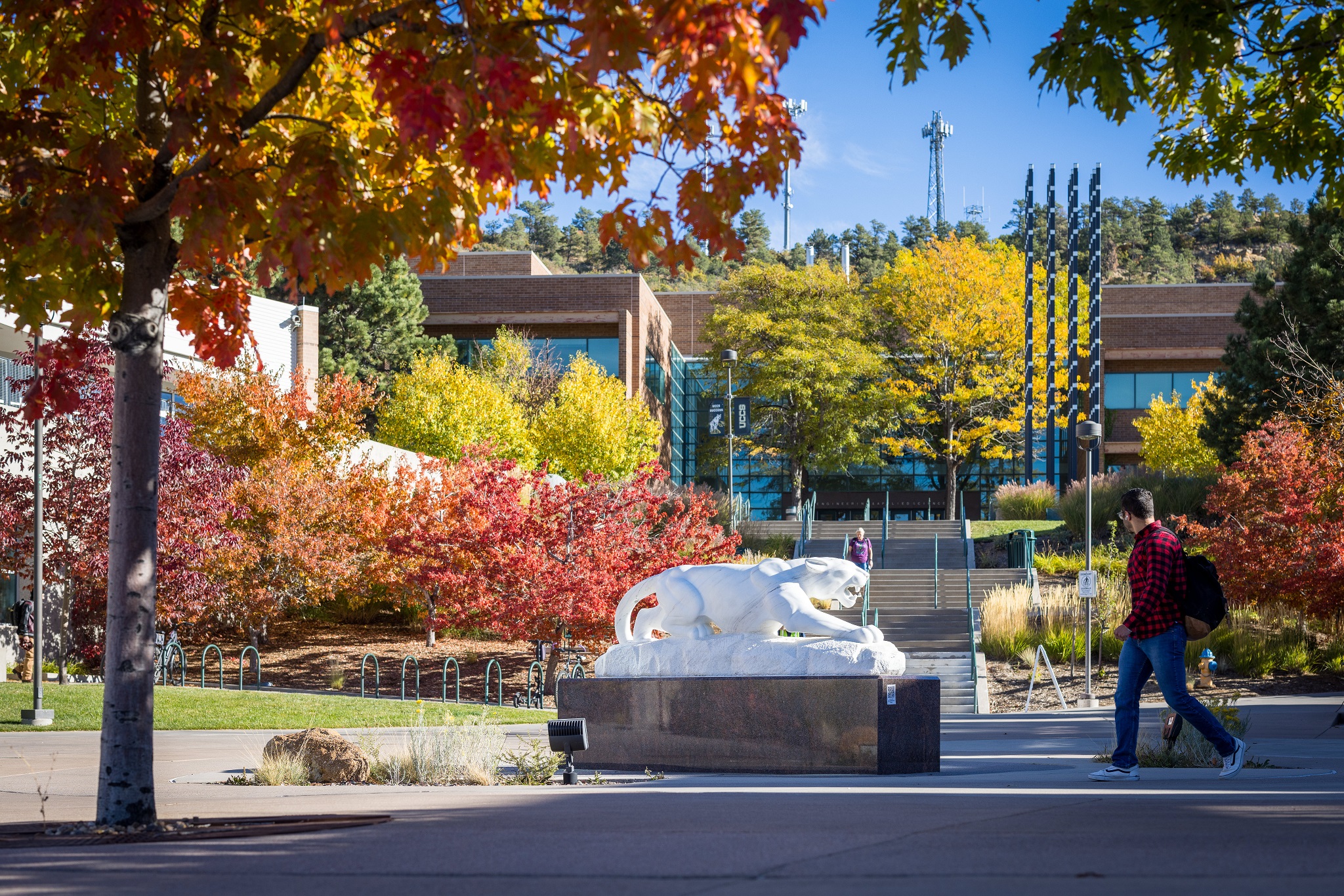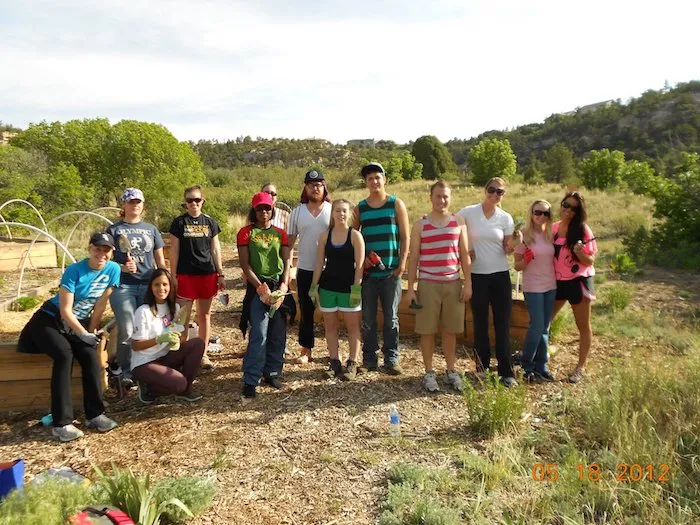

Communique - "Photo feature: wild flowers...
Sept. 29, 2011Sept. 29, 2011
Photo feature: wild flowers and the SEAS garden at Heller
- Photos by Jeff Foster, University Advancement
Judith Rice-Jones, a retired Kraemer Family Library faculty member and horticulturist, provided additional information about the UCCS Students for Environmental Awareness and Sustainability Garden at the Heller Center for Arts and Humanities.
The SEAS Garden at Heller exists to provide an experiential learning environment to develop and demonstrate food gardening systems and strategies that are ecologically, economically and socially sustainable, and that will strengthen local food systems. We are gardening with and for the environment.
Among our goals:
- Increasing biodiversity and decreasing bare ground
- Increasing the effectiveness of the water that falls on our land
- Limiting erosion and the process of gully and arroyo formation
- Ensuring that minerals present in our soil are cycling in our ecosystem efficiently
- Harvesting solar energy in our living plant species
- Building soil and ecosystem health
- Applied learning in soil biology, soil chemistry, restoration, building community around gardening.
Practicing land literacy, meaning we understand the dynamic relationships in the ecosystems that house our garden. We are able to observe our impact and alter our actions accordingly.
Raised beds were constructed last year. Raised beds were necessary as the campus archeology experts had not yet cleared the area of possible significant archeological artifacts. They have now also cleared the small area to the west of the beds where we are using berms and swales as an erosion mitigation technique.
The garden is a project of SEAS, Students for Environmental Awareness and Sustainability. Is hosted by the Heller Center for Arts and Humanities. We particularly appreciate the support we've received from Perrin Cunningham, Heller Center director. Students and faculty from many disciplines, especially from GES and Health Sciences have volunteered their time and expertise to make the garden a success. We've also had assistance and contributions from Colonel Joe Dixon of Dixon Irrigation, plants from Good Earth and Kathy Crandall and faculty and students, soil donated from C & C Sand, etc.
This fall we will be combining garden workdays with CC students. They will help in our garden and we will help at their farm. We also plan to hold composting workshops. A major goal is to establish an ongoing soil building process with compost from student dining facilities.
The Heller Center is rich with native wildflowers. We intend to maintain a native landscape between the berms and swales. In addition we are planning a native and a locally adapted wildflower garden adjacent to the path to the garden. The founder of our city, General William Jackson Palmer, started a wonderful native plant collection in Monument Valley Park over a century ago to show residents what beautiful native trees, shrubs, and perennials grew well in our area. As an educational institution we feel this is a worthy effort to emulate to the extent possible at our garden. Given the issues around water in our environment, it's important to learn how we can all use it most wisely.
Crops grown this year include: lettuce (several varieties), tomatoes ( ten varieties but unfortunately the deer ate their way through the netting and destroyed much of the crop), peppers, eggplant, broccoli, potatoes, beets, onions, kale, Swiss chard, spinach, beans and three kinds of potatoes. The most successful was definitely the heirloom Fordhook acorn squash, an abundant producer and a delicious treat.
Herbs include dill, fennel, horseradish, chives, tarragon, garlic chives, shiso, comfrey, and hyssop.
Perennials which will help build soil as well as return each year include almost all the herbs and also rhubarb, Nanking cherries, and yarrow.
- Judith Rice-Jones